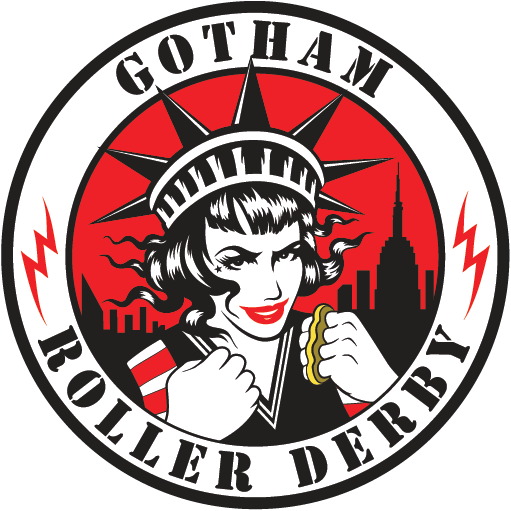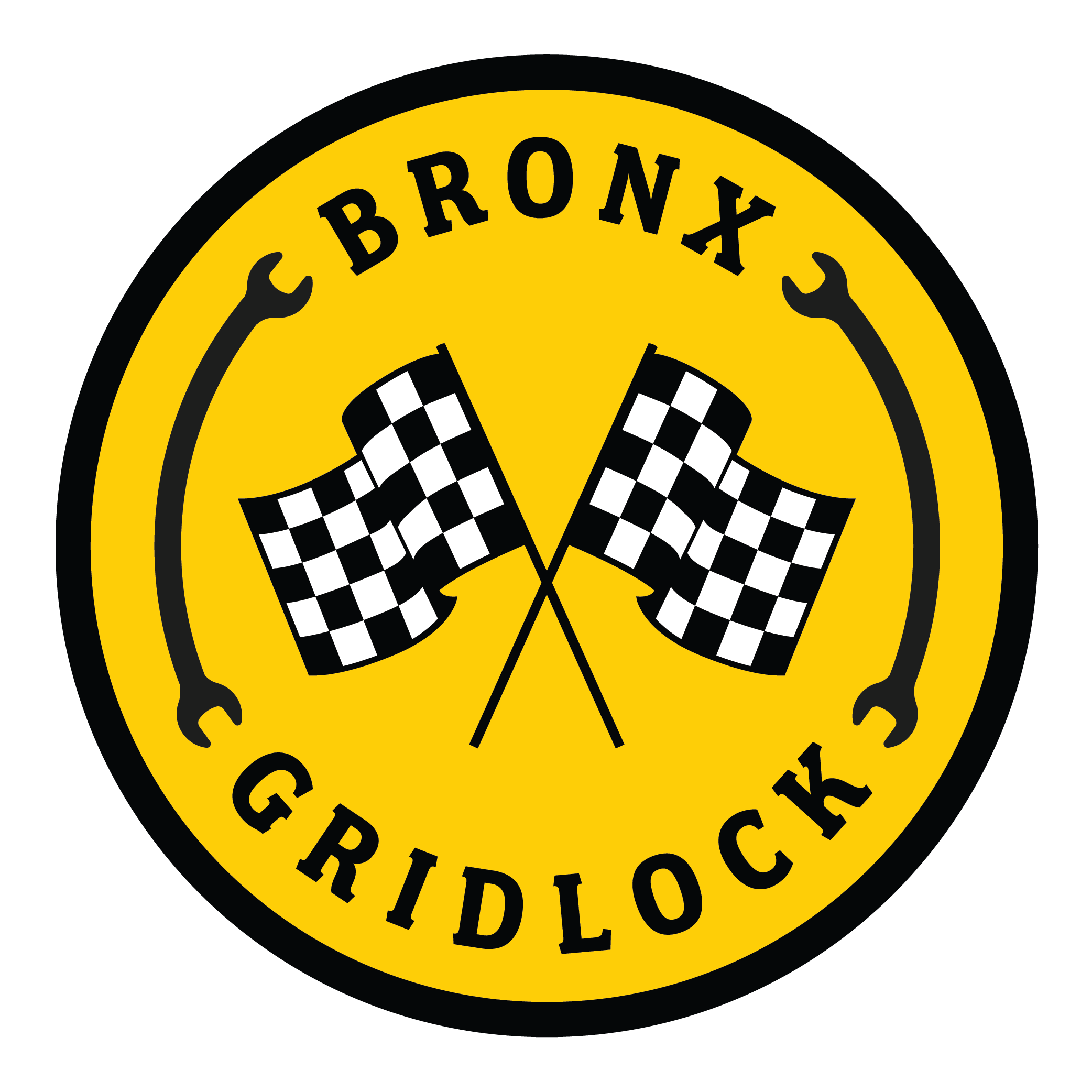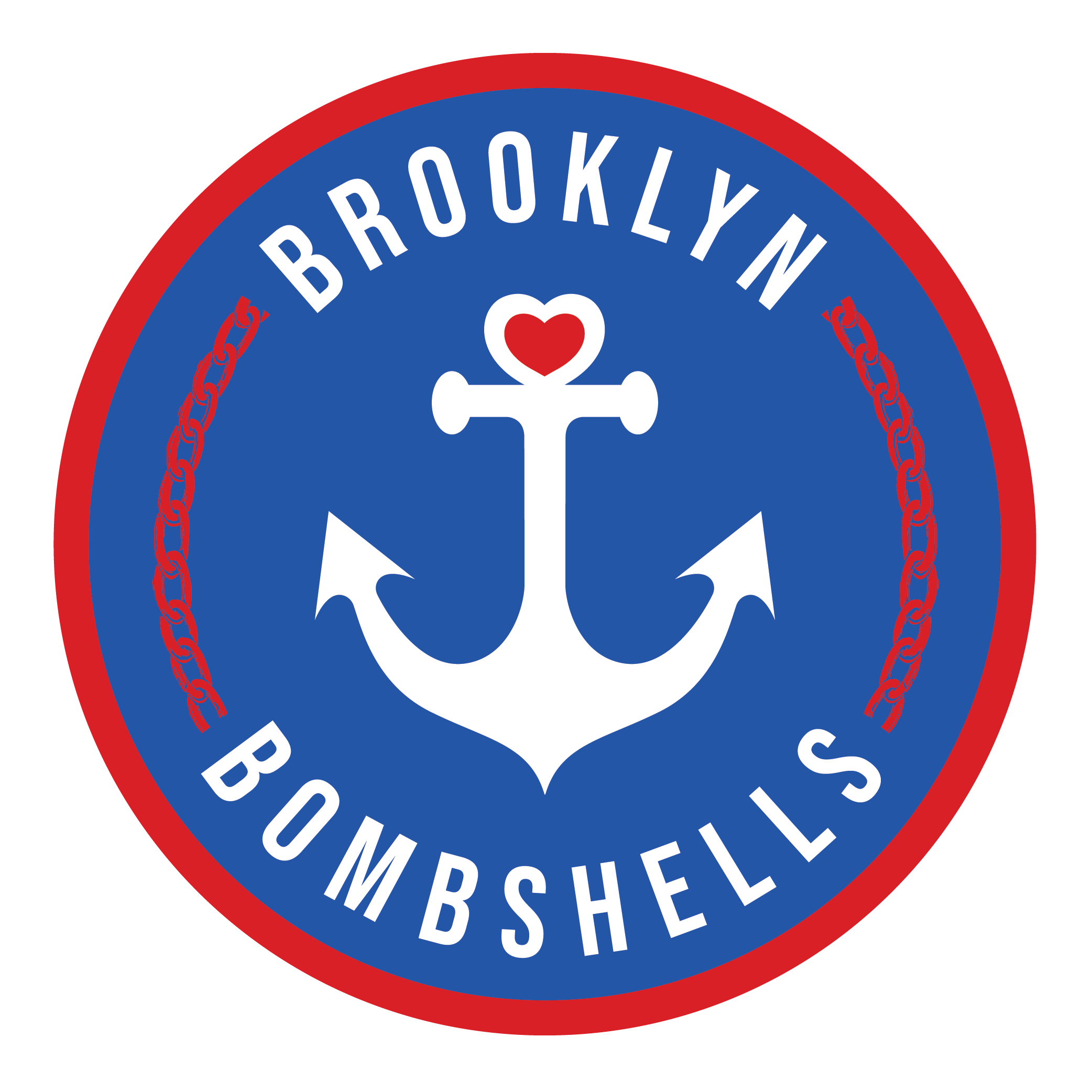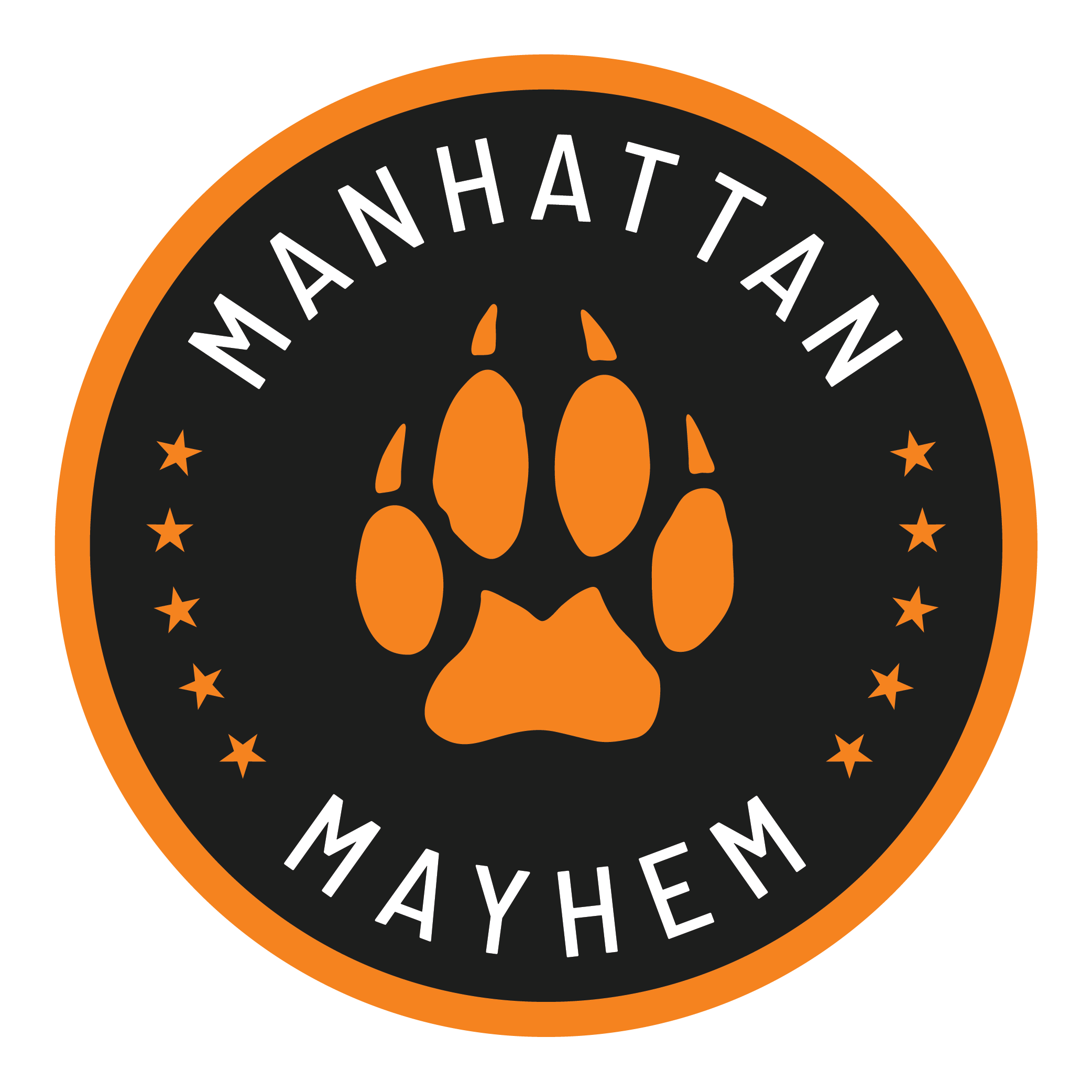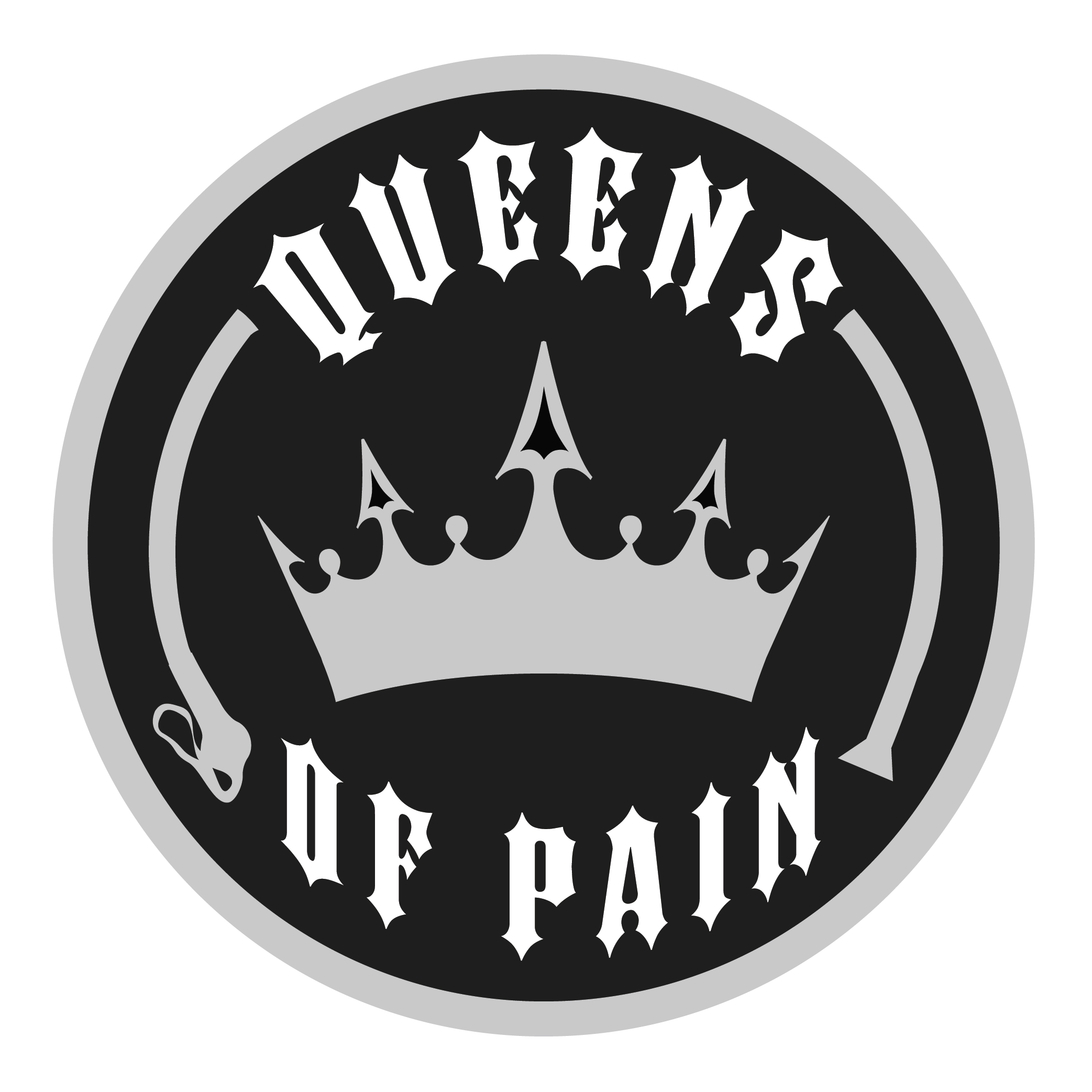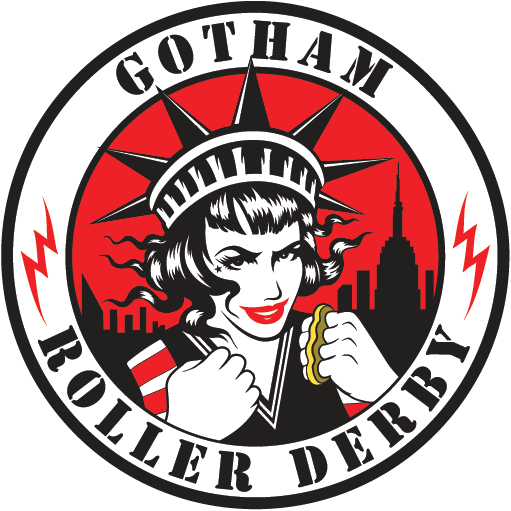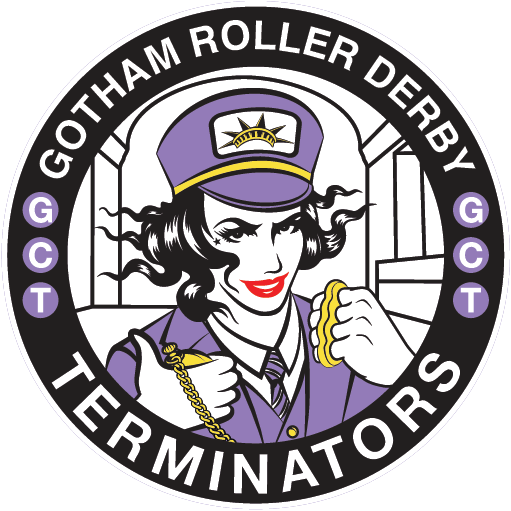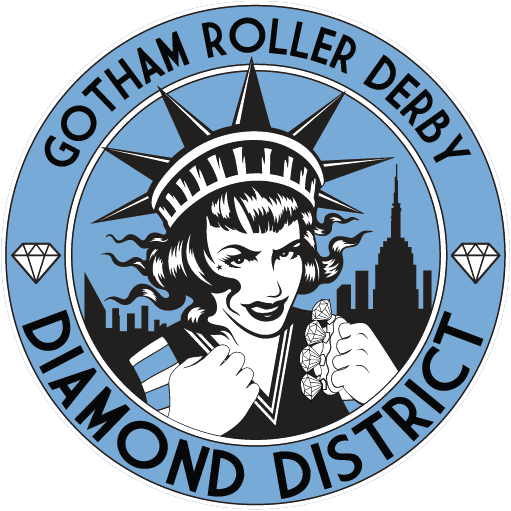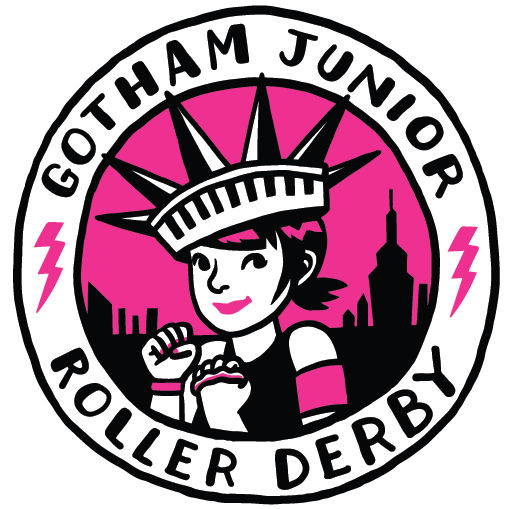FAQ
About the League
Who owns and runs the league?
Gotham Roller Derby is a 501c3 non-profit organization that is run by a volunteer force of skaters and league members who chip in their diverse skills to make the league roll.
Gotham is a proud founding member of the Women’s Flat Track Derby Association - a governing body to promote flat track derby (www.wftda.com). WFTDA provides member leagues with support including insurance, a unified rule set, collective national bargaining leverage, and rankings, along with organizing regional and international tournaments each year. The WFTDA is itself a not-for-profit association.
What is the difference between the All-Stars, Traitors, Terminators, the borough-based teams (Manhattan, Bronx, Brooklyn, Queens), and the Diamond District?
Gotham's four home teams are named for Manhattan, Bronx, Brooklyn and Queens and are drafted from each year's Fresh Meat class. These teams compete against each other locally for the Gotham Championship trophy, the Golden Skate, each season.
Gotham's All-Stars are a top ranked traveling team made up of skaters from each of Gotham's four home teams. The All-Stars are Gotham's officially chartered team within the Women's Flat Track Derby Association and play at the highest competitive levels of the sport all over the world.
The Wall Street Traitors and Grand Central Terminators are other traveling teams made up of skaters from each of the four home teams. They're not eligible for WFTDA rankings, but they do play against All-Star teams and B-teams around the country.
The Diamond District is the league's development team and competes against other regional teams.
Are skaters placed on teams based on the borough in which they live?
No. Just as in any professional sport, skaters are drafted onto the teams that need their specific skills. Players often don't live in the borough that their team represents.
How can my company sponsor the league?
As Gotham has gotten bigger, so have the opportunities for partner promotion, from program ads to game banners to website placement. Our partners support the values underlying the modern incarnation of our sport — "Real, Strong, Athletic, Revolutionary." You can find out more about our sponsorship packages by emailing sponsorship@ggrd.nyc.
Do you play on a big banked track, with rails that you flip over?
No - Gotham skates on what’s called a “flat track.”
For fifty years roller derby was played primarily on concave ("banked") tracks. These tracks were big and expensive and required reassembly as the derby skaters of the time barnstormed from town to town.
In 2001 and 2002, skaters in Austin, Texas, lacking (at the time) the budget for a banked track, created the first drafts of a modified rule set to allow the same basic game to be played on a flat surface. The popularity of this style of play has been exploding around the world, as the 'play-anywhere' nature of the flat game has allowed skaters to learn the game without investing in a banked track infrastructure.
The flat track version brings the skaters closer to the fans, and makes them more accessible than normal pro-sports figures. It literally puts the skaters inches from the fans. Plus, the low overhead it takes to practice/play on flat track has helped roller derby to sweep the country, including all the member leagues of the Women’s Flat Track Derby Association.
About the Games
What is the crowd like at the games?
One word — awesome! Gotham packs capacity crowds into their venues, and those fans are enthusiastic, creative and raucous! Homemade signs, face paint, coordinated chants — our fans are the best around. They include sports fans and hipsters, parents and kids, and both old school derby fans and new converts.
Is there beer at the games?
Almost always! Look for sponsored adult beverages from our sponsorship partners.
Isn't roller derby fixed, like wrestling?
Nope! The new wave of derby is totally non-scripted.
Do you throw a lot of elbows and clotheslines? Do you get to punch people in the face?
Just like most other contact sports, there are penalties for such infractions. For additional questions about the rules of the game, see the Rules page.
About Joining Gotham
AM I ELIGIBLE TO BE A GOTHAM SKATER?
In accordance with WFTDA policy, Gotham welcomes cisgender, transgender and intersex women and gender non-conforming participants over the age of 18. Those aged 6-17 are eligible to join our Juniors program.
HOW CAN I LEARN TO PLAY?
We teach would-be skaters how to play as part of our Basic Training program.
How do I try out?
Gotham holds tryouts once a year. For more information, check out our Tryout page.
I ALREADY SKATE FOR A LEAGUE. CAN I TRANSFER IN?
If you have skated with an actively competing league at least 80 miles away from NYC for a minimum of one year, and you have been an active skater within the last six months, you may be eligible to transfer into Gotham outside of the yearly tryout. Please contact transfers@ggrd.nyc for further eligibility requirements.
Can I visit a practice?
Active derby skaters and refs from active bouting roller derby leagues may visit some practices, depending on their prior experience. Contact the coaching committee at visitors@ggrd.nyc to find out if you can step in for a practice while you visit the New York area.
How long is the season?
Gotham’s competitive season usually lasts from April to November. After a break for the winter holidays, training season starts right back up in January.
HOW do I Become a referee?
If you are interested in being an on-skates referee or NSO (non-skating official) for the league, please contact refinfo@ggrd.nyc. The league is actively looking to expand its roster of skating and non-skating officials.
How much do you train?
Between league practices, home team practices, and extra hours for our two traveling teams, our skaters have opportunities to practice up to 12 hours a week.
Do you get hurt?
Yes, just as in any sport, injuries happen. We play hard, cross train, and rely on our referee crew to help us play as safely as possible.
Aren't you too small / too big to do that?
Roller derby positions and strategies require very diverse skill sets. No matter what size you are, there’s probably a position that works for your body type. A wide range of sizes can help build a team with varied skills that keeps opponents on their toes.
Who trains the skaters?
Largely, ourselves. We have a diverse coaching staff of skaters who have a great ability to diagnose and plan for all types of play and to create drills to prepare for the toughest national opponents.
Do skaters get paid?
No. Gotham skaters, refs and all the support staff work tirelessly for their love of the sport and our shared desire to see it grow. Their wide spectrum of backgrounds help with the administrative, promotional, and production needs of our organization.
